Redesigning Community Colleges for Completion: Lessons From Research on High-Performance Organizations (Assessment of Evidence Series)
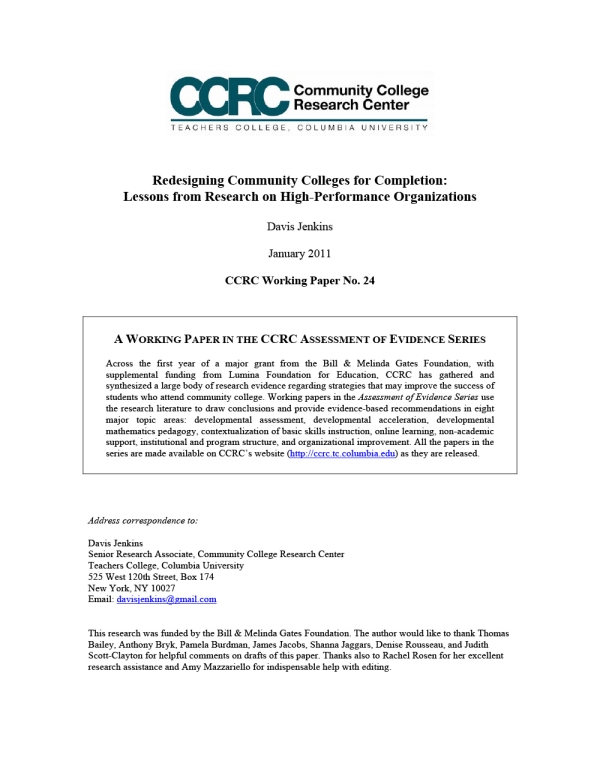
Based on practices found to be effective among a broad range of high-performance organizations, this paper outlines practical steps community colleges can take to bring about continuous improvement in student learning and progression.
The Shapeless River: Does a Lack of Structure Inhibit Students’ Progress at Community Colleges? (Assessment of Evidence Series)
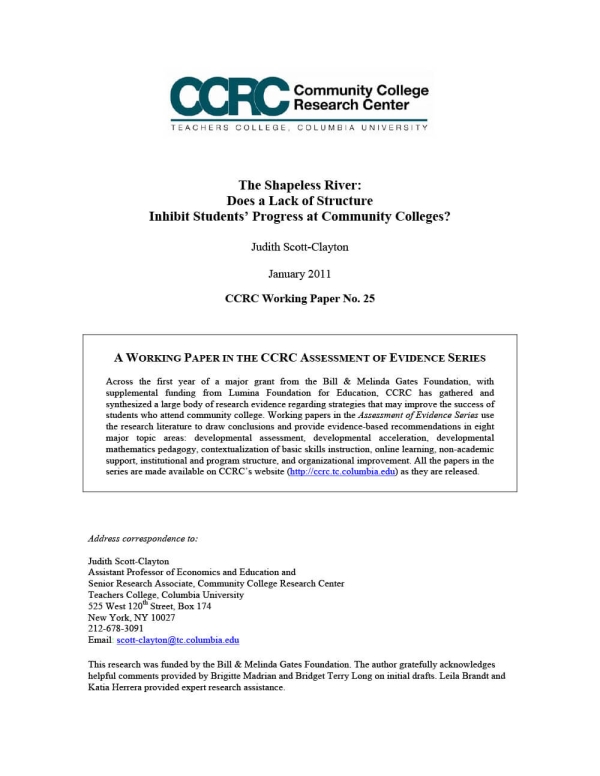
Evidence from behavioral economics and psychology lends support for the idea that students are more likely to persist and succeed in programs with highly structured paths to completion.
A Contextualized Intervention for Community College Developmental Reading and Writing Students
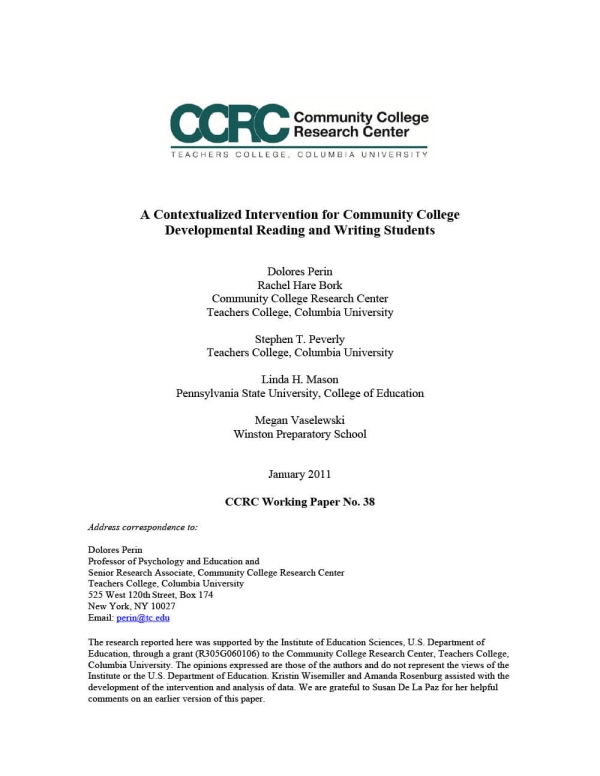
This paper provides evidence on the potential efficacy of a contextualized approach in helping students develop an important academic skill, written summarization.
The Role of Community College Education in the Employment of Information Technology Workers in Washington State
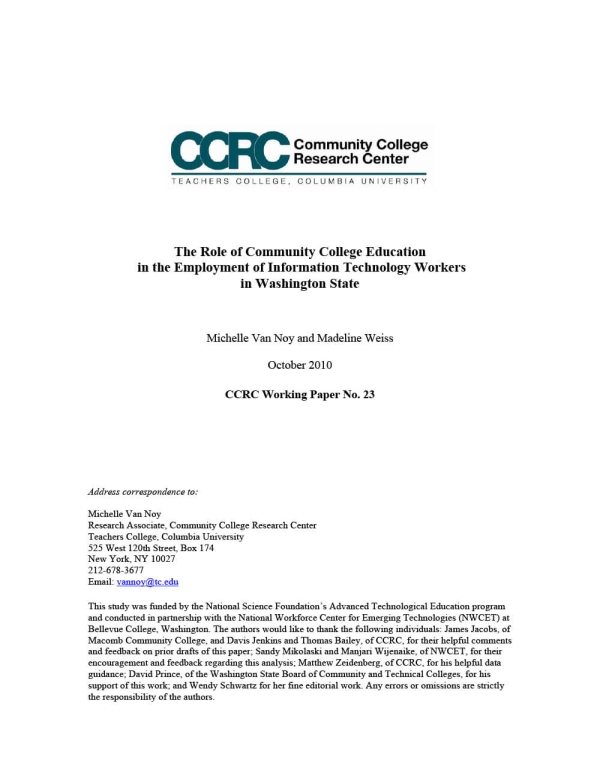
Using data on students in Washington State who pursued IT coursework at community colleges and then entered the labor market, this paper presents findings on the employment outcomes of IT students by the type of preparation they completed, and on the types of employers that hired these students.
The Political Origins of State-Level Performance Funding for Higher Education: The Cases of Florida, Illinois, Missouri, South Carolina, Tennessee, and Washington
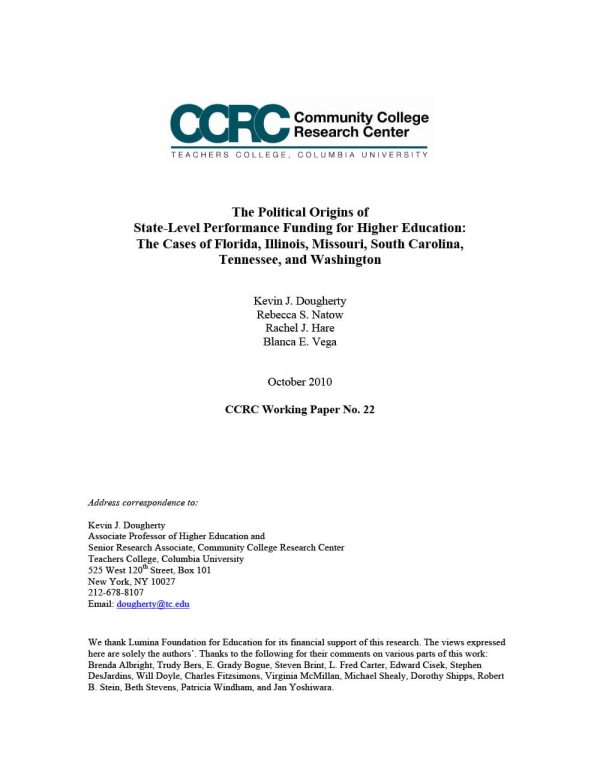
This report examines the origins of state performance funding in six states and concludes by drawing lessons for policymakers.
